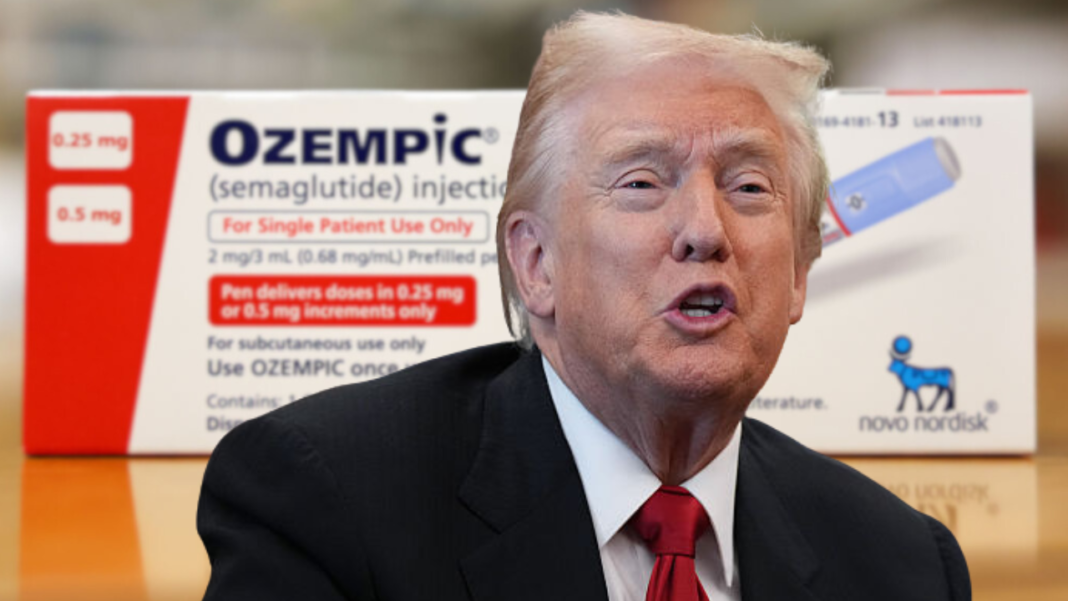White House Moves to Lower Weight Loss Medication Prices
On Thursday, the White House announced groundbreaking agreements with two major pharmaceutical companies, Eli Lilly and Novo Nordisk, aimed at reducing prices for weight loss medications. This initiative is designed to increase accessibility for millions of Americans, particularly Black Americans who face significant health disparities linked to conditions like obesity and diabetes.
The Announcement
President Donald Trump made the announcement during a press conference in the Oval Office, presenting what the White House describes as “the most significant actions ever taken by our federal government to lower prescription drug prices.” The administration has emphasized that these agreements will dramatically decrease the costs Americans pay for some of the most widely used weight loss drugs.
Targeted Medications and Cost Reductions
Among the medications affected are popular prescriptions such as Ozempic, Wegovy, and Zepbound. The new pricing structure particularly benefits patients enrolled in Medicaid and Medicare, as well as those who purchase medications out-of-pocket through TrumpRx—a new direct-to-consumer platform created for this purpose.
President Trump stated, “This is a triumph for American patients that will save lives and improve the health of millions and millions of Americans.” Under the new agreements, the monthly costs for Ozempic and Wegovy are set to decrease dramatically, from approximately $1,000 and $1,350, respectively, to just $350. Additionally, if approved, Zepbound and Orforglipron will see a reduction from $1,086 to an average of $346 per month.
Addressing Health Disparities
One of the key motivations behind these agreements is to help address the chronic health disparities that affect Black Americans. Studies indicate that this demographic experiences disproportionately high rates of obesity and related chronic diseases but often lacks access to effective treatments. Dr. Michael G. Knight, a clinical associate professor at the George Washington University, pointed out that despite the high efficacy of weight loss medications, a vast number of patients in this community have not been able to access them traditionally.
Insurance Coverage Challenges
Currently, access challenges remain significant, particularly concerning insurance coverage. Medicare typically does not cover obesity medications unless patients meet specific medical criteria, and many Medicaid plans also exclude coverage. This leaves many potential patients without options, emphasizing the need for these new agreements to open up greater access to necessary treatments.
Dr. Knight noted, “Almost all Medicaid patients are in underserved communities, and a large percentage of them are communities of color…so that’s going to open up access.” By lowering the cost of medications, it is anticipated that more Medicaid plans will begin to provide coverage, ultimately improving health outcomes in these communities.
Out-of-Pocket Expenses
For individuals who must purchase these medications out-of-pocket, the implications of these reduced prices are enormous. Dr. Knight remarked, “If you don’t [have the money], you can’t get it treated, which is not the way that we treat anything else in medicine.” He highlighted the fundamental principle that access to quality health care should not be dictated by a person’s financial situation, which has historically been the case with obesity-related treatments.
Future Considerations for Eligibility
Looking forward, there are still uncertainties regarding how many Americans will truly benefit from these agreements. Dr. Knight cautioned that the specifics of eligibility for Medicaid and Medicare are crucial to understanding the full impact of this policy change. “Does that mean [they] have to have obesity and cardiovascular disease and sleep apnea?… Obesity, in and of itself, is a chronic condition that deserves treatment.”
Potential Impact on Black Communities
Despite the complexities, many health experts, including Dr. Knight, see these developments as promising for Black populations dealing with obesity. However, he emphasized the need for a robust framework to ensure that all individuals living with obesity can access effective treatment without undue restrictions.
The unfolding implications of these agreements highlight a critical moment in addressing both the economic and health disparities prevalent in American society, making it an important issue worth following closely.



